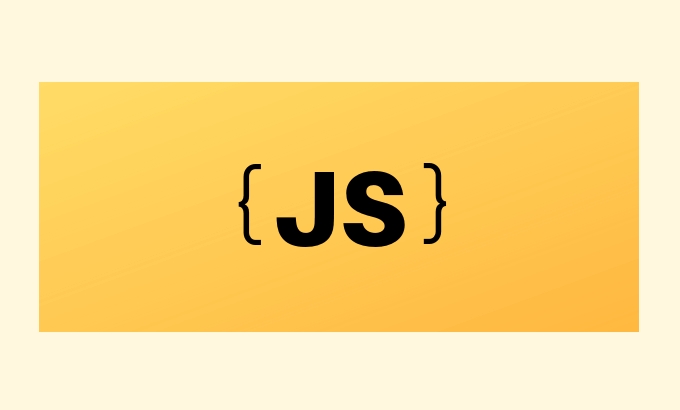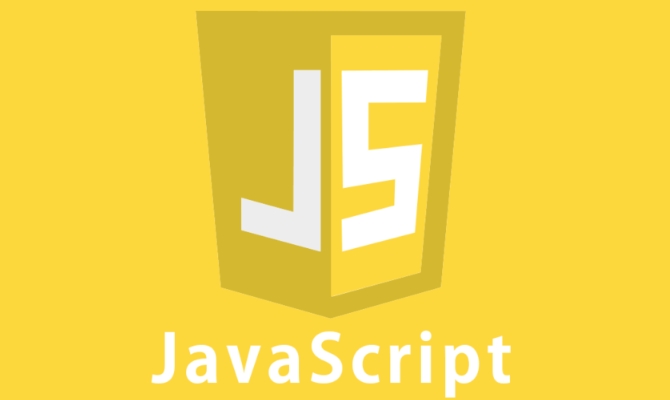 Web Front-end
Web Front-end
 JS Tutorial
JS Tutorial
 Comparing Functional Programming and Object-Oriented Programming in JavaScript
Comparing Functional Programming and Object-Oriented Programming in JavaScript
Comparing Functional Programming and Object-Oriented Programming in JavaScript
Jul 09, 2025 am 02:40 AMFunctional programming (FP) is suitable for data immutable scenarios, emphasizing pure functions and no side effects, and is suitable for processing data transformations such as array mapping or filtering; Object-oriented programming (OOP) is suitable for modeling real-world entities, encapsulating data and behaviors through classes and objects, and is suitable for managing objects with state such as bank accounts; JavaScript supports the use of the two, and selecting appropriate paradigms according to needs to improve code quality. 1. FP is suitable for scenarios where data transformation and state remains unchanged, making it easy to test and debug. 2. OOP is suitable for modeling entities with identity and internal state, providing a good organizational structure. 3. JavaScript allows the mixing of FP and OOP, using their respective advantages to improve maintainability.

Functional programming and object-oriented programming (OOP) are two of the most common paradigms used in JavaScript. While JavaScript is a multi-paradigm language that supports both, each approach has its own strengths and best-use cases. If you're trying to decide which one to use or understand when each makes more sense, here's a breakdown based on real-world usage and practical considerations.

When Immutability Matters: Functional Programming Shines
Functional programming emphasizes pure functions, immutability, and avoiding side effects. This makes it particularly useful when dealing with predictable transformations of data — think operations like filtering, mapping, or reducing arrays.

- Pure functions always return the same output for the same input, making them easier to test and debug.
- Immutable data means you don't accidentally change state somewhere else in your app, which can be a big win in complex logic or asynchronous flows.
For example, using Array.prototype.map() to transform a list without changing the original array fits the functional style perfectly.
If you're working with libraries like React, especially when using hooks and Redux, functional patterns are often encouraged because they help manage state in a more predictable way.

Modeling Real-World Entities? OOP Might Be Better
Object-oriented programming revolutions around objects that encapsulate both data (properties) and behavior (methods). It's great when modeling things that have identity and internal state — like users, products, or UI components.
- Classes in JavaScript provide a clean structure for creating multiple instances with shared behavior.
- Encapsulation allows you to hide implementation details and expose only what's needed through methods.
Take a BankAccount class as an example: it might have properties like balance and methods like deposit() and withdraw() . These actions directly modify the internal state of a specific instance — something that feels natural in OOP.
In large applications with complex domain models, OOP can offer better organization and maintenance ability by grouping related data and functionality together.
Mixing Both Styles Is Totally Fine in JavaScript
One of the biggest advantages of JavaScript is that it doesn't force you into one paradigm. In fact, many projects use a mix of both functional and object-oriented techniques depending on the context.
- You might define classes to represent entities but use functional utilities to process collections of those entities.
- Libraries like Lodash or Ramda bring functional tools into any codebase, even if it's mostly OOP-driven.
This flexibility means you don't have to pick one over the other. Instead, choose the right tool for the job at hand:
- Use FP for data transformation pipelines.
- Use OOP for modeling entities with behavior and state.
- Combine them where it improves readability and maintenance.
Basically, neither functional nor object-oriented programming is universally better in JavaScript. They solve different kinds of problems well, and knowing when to lean into each will make your code cleaner and more effective.
The above is the detailed content of Comparing Functional Programming and Object-Oriented Programming in JavaScript. For more information, please follow other related articles on the PHP Chinese website!

Hot AI Tools

Undress AI Tool
Undress images for free

Undresser.AI Undress
AI-powered app for creating realistic nude photos

AI Clothes Remover
Online AI tool for removing clothes from photos.

Clothoff.io
AI clothes remover

Video Face Swap
Swap faces in any video effortlessly with our completely free AI face swap tool!

Hot Article

Hot Tools

Notepad++7.3.1
Easy-to-use and free code editor

SublimeText3 Chinese version
Chinese version, very easy to use

Zend Studio 13.0.1
Powerful PHP integrated development environment

Dreamweaver CS6
Visual web development tools

SublimeText3 Mac version
God-level code editing software (SublimeText3)

Hot Topics
 What are the benefits of using C++ lambda expressions for functional programming?
Apr 17, 2024 am 10:18 AM
What are the benefits of using C++ lambda expressions for functional programming?
Apr 17, 2024 am 10:18 AM
C++ lambda expressions bring advantages to functional programming, including: Simplicity: Anonymous inline functions improve code readability. Code reuse: Lambda expressions can be passed or stored to facilitate code reuse. Encapsulation: Provides a way to encapsulate a piece of code without creating a separate function. Practical case: filtering odd numbers in the list. Calculate the sum of elements in a list. Lambda expressions achieve the simplicity, reusability, and encapsulation of functional programming.
 How to optimize Golang functional programs using lazy evaluation?
Apr 16, 2024 am 09:33 AM
How to optimize Golang functional programs using lazy evaluation?
Apr 16, 2024 am 09:33 AM
Lazy evaluation can be implemented in Go by using lazy data structures: creating a wrapper type that encapsulates the actual value and only evaluates it when needed. Optimize the calculation of Fibonacci sequences in functional programs, deferring the calculation of intermediate values ??until actually needed. This can eliminate unnecessary overhead and improve the performance of functional programs.
 PHP extension development: How to design custom functions to support object-oriented programming?
Jun 01, 2024 pm 03:40 PM
PHP extension development: How to design custom functions to support object-oriented programming?
Jun 01, 2024 pm 03:40 PM
PHP extensions can support object-oriented programming by designing custom functions to create objects, access properties, and call methods. First create a custom function to instantiate the object, and then define functions that get properties and call methods. In actual combat, we can customize the function to create a MyClass object, obtain its my_property attribute, and call its my_method method.
 Application of golang functions in high concurrency scenarios in object-oriented programming
Apr 30, 2024 pm 01:33 PM
Application of golang functions in high concurrency scenarios in object-oriented programming
Apr 30, 2024 pm 01:33 PM
In high-concurrency scenarios of object-oriented programming, functions are widely used in the Go language: Functions as methods: Functions can be attached to structures to implement object-oriented programming, conveniently operating structure data and providing specific functions. Functions as concurrent execution bodies: Functions can be used as goroutine execution bodies to implement concurrent task execution and improve program efficiency. Function as callback: Functions can be passed as parameters to other functions and be called when specific events or operations occur, providing a flexible callback mechanism.
 How do C++ functions differ from object-oriented programming?
Apr 11, 2024 pm 09:12 PM
How do C++ functions differ from object-oriented programming?
Apr 11, 2024 pm 09:12 PM
Functional and Object-Oriented Programming (OOP) provide different programming mechanisms in C++: Function: independent block of code, focused on performing a specific task, containing no data. OOP: Based on objects, classes and inheritance, data and behavior are encapsulated in objects. In actual cases, the function method for calculating the area of ??a square is simple and direct, while the OOP method encapsulates data and behavior and is more suitable for managing object interaction. Choosing the appropriate approach depends on the scenario: functions are good for independent tasks, OOP is good for managing complex object interactions.
 Common mistakes and pitfalls of golang functional programming
Apr 30, 2024 pm 12:36 PM
Common mistakes and pitfalls of golang functional programming
Apr 30, 2024 pm 12:36 PM
There are five common mistakes and pitfalls to be aware of when using functional programming in Go: Avoid accidental modification of references and ensure that newly created variables are returned. To resolve concurrency issues, use synchronization mechanisms or avoid capturing external mutable state. Use partial functionalization sparingly to improve code readability and maintainability. Always handle errors in functions to ensure the robustness of your application. Consider the performance impact and optimize your code using inline functions, flattened data structures, and batching of operations.
 What are the functional programming properties of C++ functions?
Apr 11, 2024 pm 06:12 PM
What are the functional programming properties of C++ functions?
Apr 11, 2024 pm 06:12 PM
C++ supports functional programming features, including: Pure functions: declared using the const modifier, do not modify input or rely on external state. Immutability: Using the const keyword to declare a variable, its value cannot be modified. Lazy evaluation: Use the std::lazy function to create lazy values ??and lazily evaluate expressions. Recursion: A functional programming technique in which a function calls itself, using return to call itself.
 How to use Golang functional programming?
Apr 11, 2024 pm 12:18 PM
How to use Golang functional programming?
Apr 11, 2024 pm 12:18 PM
Ways to implement functional programming in Go include using anonymous functions, closures, and higher-order functions. These functions allow defining unbound functions, accessing variables in the outer scope, and accepting or returning other functions. Through functional programming, Go code can become more concise, readable and reusable.





